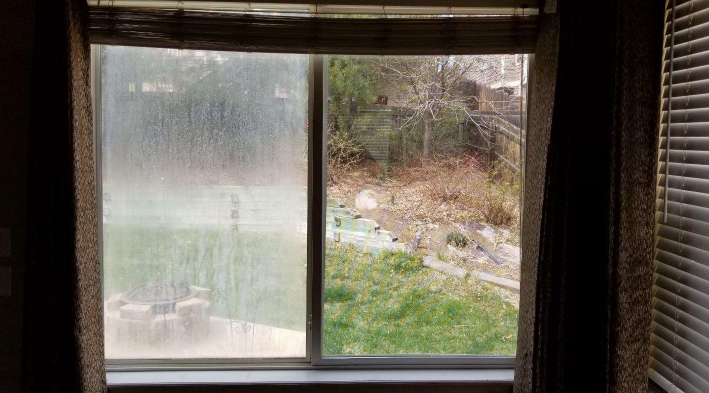Understanding Insulated Glass (IG): A Comprehensive Guide for Homeowners
What is Insulated Glass (IG)?
Insulated Glass (IG), also known as double glazing or double-pane glass, consists of two or more glass panes separated by a spacer and sealed together in a frame to create a single unit. This design enhances thermal performance and reduces noise, making it a popular choice for modern homes.
Why Choose Insulated Glass?
1. Energy Efficiency
Insulated Glass is designed to improve the energy efficiency of your home. The space between the glass panes acts as an insulator, reducing the amount of heat that escapes in the winter and keeping your home cooler in the summer, thereby lowering your energy bills. Learn more about our
window and screen solutions.
2. Noise Reduction
One of the significant benefits of IG units is their ability to reduce external noise. The multiple layers of glass create a barrier that minimizes the amount of sound that enters your home, making it a quieter and more peaceful environment.
3. Condensation Prevention
Condensation can be a major issue with single-pane windows, leading to mold and mildew growth. Insulated Glass helps prevent condensation by maintaining a more consistent temperature on the glass surface, enhancing indoor air quality and comfort. Check out our
FAQ for more details.
4. Energy Savings
Insulated Glass provides significant energy savings for your home. By enhancing thermal insulation, IG units reduce the need for heating and cooling, leading to lower energy consumption. The “R” factor of IG units, which measures their resistance to heat flow, indicates their efficiency. Higher R-values mean better insulation, translating into substantial savings on your energy bills over time.
How to Tell If Your Window Glass Has Gone Bad
Wondering if your window glass needs to be replaced? Here are some common signs that it might be time for a new one:
Condensation Between Panes
Fog or moisture between the glass panes is a sign that the seal has failed, allowing insulating gas to escape and reducing the window’s efficiency.
Increased Energy Bills
Rising energy costs may result from poor insulation due to faulty window glass.
Before IG Repair
 After IG Repair
After IG Repair

By observing these signs, you can determine whether it’s time to replace your insulated glass. For a professional assessment, consult with an expert to accurately gauge the condition of your windows. Visit our
contact page for more information.
Replacing Broken Panes
If one of the panes in your double-pane window is broken, you must replace the entire sealed unit. Here’s why:
Sealed Unit
Double-pane window glass is a factory-produced sealed unit. Anything that causes the gas to escape causes the unit to fail. The unit must be replaced—you cannot repair an insulated glass unit. For customized solutions, visit our
custom glass page.
How Does Insulated Glass Work?
The key to the effectiveness of Insulated Glass lies in its construction. Here’s a simple breakdown:
Multiple Glass Panes
Typically, IG units have two panes of glass. However, for enhanced performance, some units may have three panes (triple glazing).
Spacer
The spacer holds the glass panes apart and creates the insulating gap. It is usually filled with a desiccant to absorb any moisture.
Sealant
The edges of the IG unit are sealed to prevent air and moisture from entering the space between the panes, ensuring durability and effectiveness.
In Colorado, new IGs produced do not have a gas fill between the panes due to the region’s extreme temperatures causing the gas to
dissipate quickly. Instead, the spacer/desiccant process is used to maintain insulation efficiency.
Types of Insulated Glass
Low-E Glass
Low-Emissivity (Low-E) glass has a special coating that reflects heat while allowing light to pass through. This helps keep your home warm in the winter and cool in the summer.
Tempered Glass
Tempered glass is a type of safety glass that is stronger than regular glass. It is treated with heat to enhance its strength and, if broken, it shatters into small, blunt pieces instead of sharp shards.
Laminated Glass
Laminated glass consists of two or more layers of glass with a plastic interlayer. It offers excellent security and sound insulation, as it holds together even when shattered. Learn more about our approach on our
Hansen Glass Approach page.
Benefits of Upgrading to Insulated Glass
- Cost Savings: Reduced energy bills due to improved insulation.
- Comfort: More stable indoor temperatures and reduced drafts.
- Noise Reduction: Quieter indoor environment.
- Safety: Enhanced security features with tempered and laminated options.
- Environmental Impact: Lower energy consumption reduces your carbon footprint.
Insulated Glass (IG) is an excellent investment for any homeowner looking to improve energy efficiency, comfort, and security. By understanding its benefits and how it works, you can make an informed decision that enhances the quality of your home.
For more information, visit
Hansen Glass.
 After IG Repair
After IG Repair
 By observing these signs, you can determine whether it’s time to replace your insulated glass. For a professional assessment, consult with an expert to accurately gauge the condition of your windows. Visit our contact page for more information.
By observing these signs, you can determine whether it’s time to replace your insulated glass. For a professional assessment, consult with an expert to accurately gauge the condition of your windows. Visit our contact page for more information.

